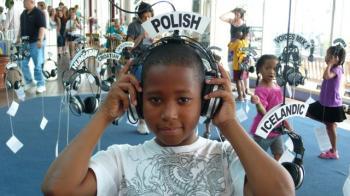Poland Commemorates Second World War
The German battleship Schleswig-Holstein attacked the Polish military base Westerplatte on the first of September 1939 at 4:45 a.m.
Corporal Ignacy Skowron, 95 year old survivor of the war said that it was worthwhile to fight and suffer to see the day of freedom. Maria Salzman/The Epoch Times
|Updated:

